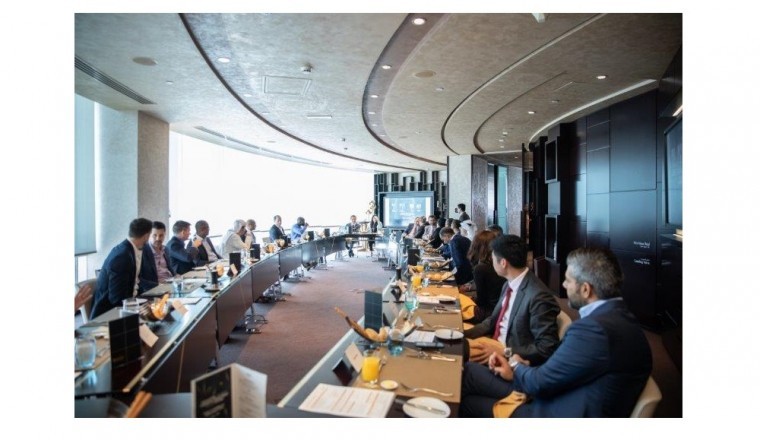
Dubai, United Arab Emirates, October 21, 2019, (AETOSWire) : Players in the United Arab Emirates’ (UAE) education sector are attributing the market’s steady growth to a shift in consumer preference that has seen the mid-market institutions increasingly disrupt the region’s industry status quo.
Driven by ballooning student enrollment, Dubai’s mid-market private schools are now emerging as the go-to segment for many parents with students enrolled in good or better schools having shot to 71 percent between 2018-2019 compared to a low of 30 percent in 2008-2009.
This, according to experts, has mainly been fueled by an emerging sophisticated demographic, which is not only price-sensitive but is also looking for institutions that offer a curriculum that can equip students with relevant skills to compete in a highly competitive environment.
Stakeholders in the sector have, however, also raised concerns about Dubai’s growing unmet demand for quality education. This follows the city’s emerging district falling worryingly short of good quality schools.
Against this backdrop, the demand for mid-market British curriculum schools is expected to grow at a compound annual growth rate of 16.5 percent by 2021 up from 12.8 percent in 2017.
Speaking at a roundtable consultative stakeholders forum dubbed, Education: The Most Powerful Investment in Our Future, Raza Khan, chief executive officer, Al Najah Education, reaffirmed that education remains the most impactful investment in the region.
He also encouraged investors to take full advantage of the growing demand in the mid-market segment. This, he said, will also help the sector to fill the gap in the underserved districts through the establishment of quality schools in Dubai.
“Investors looking to make an impact should seriously consider investing in Dubai’s education sector. The mid-market private school segment is growing year-on-year. There are areas in the city that don’t have enough quality schools. These factors alone should, therefore, encourage investors to seriously consider investing in education,” said Khan.
Zahara Malik, CEO of Grosvenor Capital, highlighted that the roundtable drew specialists and investors across the region and globally to highlight the full vehicle of investing in education “The session allowed experts from education to draw from key themes across Education, from Ed tech and to investing within the traditional levels of Education.”
During the interactive forum organized by ITP Media Group, in association with Grosvenor Capital, and hosted by Al Najah Education, Khan also highlighted the importance of adopting a sustainable model that’s in line with the needs of the community.
He attributed the price, location and curriculum model as having enabled Al Najah Education, for instance, to register a 25 percent year-on-year growth.
Participants at the roundtable forum were drawn from India, Pakistan, Africa, Singapore, United Arab Emirates and Australia among other countries.
Government support
Despite its strong and stable regulation coupled with the high barriers of entry into the education sector, the UAE government has also been lauded for its efforts towards creating an enabling environment for investors in the education sector.
The government through the land department has ensured that all real estate projects have a provision for education infrastructure. However, due to the ever-growing demand for quality education in the country, the stakeholders are still pushing for more resources to be allocated.
Commenting on the relationship between education and infrastructure, Nrupaditya Singhdeo board member, Al Najah Education noted that real estate has always been attractive to investors and there was a need to create synergy with education through value addition
“The government is looking to invest in real estate beyond residential and commercial such as shopping malls. If we can put sustainable or profitable schools and highly-efficient schools in real estate assets, we can generate the right kind of income that will be sustainable for the real estate investor to earn as an investment or the real estate owner to earn as rent out of that investment,” said Nrupaditya.
Future trends
With global education expected to reach US$ 10 trillion by 2030, analysts indicate that Asia and Africa will be leading in the expansion.
In Dubai, private education enrollment is expected to grow at a compound annual growth rate of about 5.5 percent with the British curriculum being the most preferred with an enrollment share of 37 percent closely followed by Indian at 27 percent.
UAE’s education sector is on the verge of transformation as key players integrate technology with brick and mortar to enhance the experience for the students and parents.
Investors are now citing that teachers that are skilled and confident with technology will be the key drivers of future schools.
They are also confident that investment companies and private equity funds will be targeted by the sector due to their ability to finance qualified schools and implementing new technologies.
This, analysts say, will create a demand for high margin schools and as a result, boost demand for the institutions.



















Facebook Conversations
Disqus Conversations